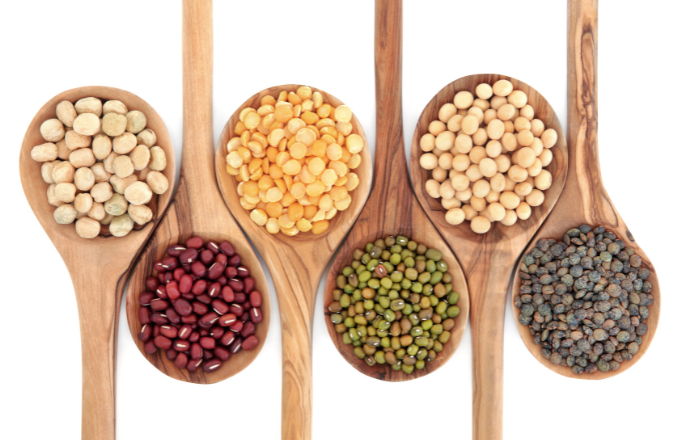
February 10 is World Pulses Day, a group of plants rich in fibre and protein made up of different species of peas, beans, lentils, chickpeas and soybeans. Pulses play an important role in agriculture, food and human health due to their many attributes.
In agriculture, pulses have the potential to fix nitrogen in the soil, making the land richer in this nutrient and consequently contributing to the growth of other agricultural crops. After being harvested, pulses can be eaten as a source of protein, fibre, vitamins and minerals, nutrients that are important for the development of children and for food and nutritional security for various age groups.
Pulses are present in various food systems around the world and the World Food Programme (WFP) Centre of Excellence against Hunger Brazil works with partner countries and institutions on projects that involve all phases of food systems to help overcome malnutrition.
 The Beyond Cotton Project works in the field with smallholder farmers where pulses are planted in consortium with cotton and other crops to promote food and nutritional security and improve the living conditions of the beneficiaries.
The Beyond Cotton Project works in the field with smallholder farmers where pulses are planted in consortium with cotton and other crops to promote food and nutritional security and improve the living conditions of the beneficiaries.
In Mozambique, for example, the farmers, with technical support from the project, planted two types of beans associated with cotton, sesame and sorghum. In this case, the pulses are inserted to fix nitrogen and, consequently, nourish the other crops, improving their production.
In 2023, the Centre of Excellence’s technical team, together with the WFP office in Mozambique and the higher education institutions partners, held culinary workshops with the local community in two districts of the country to help introduce intercropped foods into people’s daily lives in order to diversify their diet and promote food security.
During these workshops, farmers were able to take part in culinary demonstrations with beans enriched with other foods present at the plantations, such as pumpkin and tomatoes. These workshops are scheduled to take place in other districts in the first half of 2024.
Beyond Cotton is developed by the WFP Centre of Excellence against Hunger in partnership with the WFP offices in Benin, Mozambique and Tanzania, the Brazilian Cooperation Agency (ABC, in Portuguese), of the Ministry of Foreign Affairs, and Higher Education Institutions.




